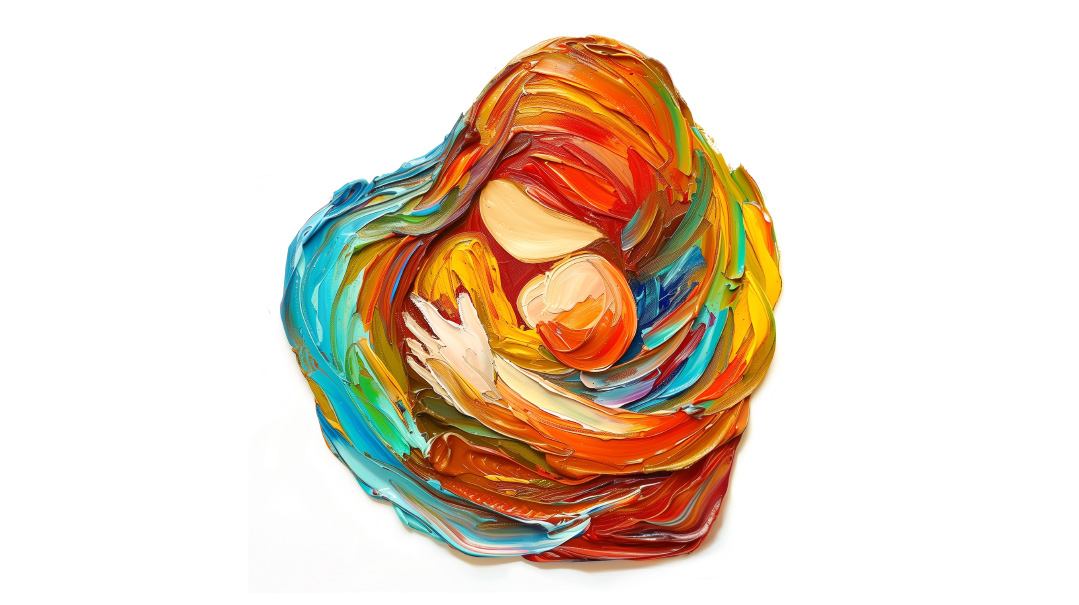Oh, Brave New World

Baalei teshuvah speak candidly about what they left behind and the obstacles they overcame as they acclimated to frum life

B
ecoming a baal teshuvah (BT) might be compared to immigrating to a foreign country, where “immigration” is typically a long, arduous process. “New immigrants” suffer a mighty wallop to the ego. They’re tongue-tied in their new language and bewildered by the system. The newbie BT finds herself well behind the four-year-olds when it comes to knowing the basics of hilchos Shabbos, unable to sing a single Uncle Moishy tune or Avraham Fried niggun.
But Torah is emes, and once people get a taste of it, most don’t want to give it up. The joy of having a connection to Hashem, learning Torah, and becoming part of a Jewish community keep them plowing forward, despite the difficulties.
Nobody’s Perfect
Baalei teshuvah are often idealists by nature, and when they discover religion, they sometimes put unnecessary pressure on themselves to get it right all the time.
“We advise people, ‘It won’t be easy,’ ” says Rabbi Moshe Fingerer, the director of the BJX (Brooklyn Jewish Xperience) kiruv center. “When you’ve eaten treif food and done whatever you wanted on Saturdays your entire life, it’s a huge change. But we encourage baby steps. If you try to move forward too fast, it won’t stick. A slow metamorphosis works better.”
Rabbi Fingerer reassures his new recruits that everyone, even frum-from-birth Jews (FFBs) who have absorbed halachah since childhood, should consider themselves a work in progress. “Only the Beis Hamikdash possessed perfection,” he tells them. “The rest of us just do our best.”
Among married couples, tensions sometimes arise when one spouse is impatient to progress faster than the other. When Binah, a baalas teshuvah from Boston, got married, she agreed to cover her hair on Shabbos, but wasn’t sure she was ready to do it full-time. In the end, she began covering her hair during the week, too. But her husband, who had enrolled in a kollel, was very anxious that she do it perfectly, and was appalled that she would allow a few strands of hair to peek out from her tichel. “He’d make these embarrassing gestures when we were out in public to tell me some hair was sticking out,” Binah recalls with a laugh. “I hated being pushed! Eventually I went along with him and became stricter, but I didn’t appreciate him not understanding I needed to grow at my own pace.” Couples may likewise clash over taking on chumras like chalav Yisrael, or getting Pesach observance right.
Couples may also struggle with striking the right note in their parenting. Rabbi Avraham Yechiel Hirschman, the rav of Pico Bais Medrash, a shul and community comprised mostly of baalei teshuvah, says, “Most of these people come from homes where they experienced good parenting. Just because they’re now frum doesn’t mean they have to throw away everything they learned from their parents.
“For example, I met a father who didn’t want his kid to play any basketball, believing it wasn’t appropriate for a yeshivah boy. I told him I used to be a Blue Jays fan. Many BTs want so badly to grow, that they’re an inspiration to me, but I try to help them mute the extremes.” As their rav, he tries to help them gauge the normal bounds of behavior in frum society, balancing the desire to reach the Heavens against the necessity of keeping one’s feet firmly planted on the ground.
His mispallel Josh Kopple underscores the importance of having a rav for guidance. “So many people don’t develop a close relationship to a rav, or follow his psak,” he says. “But life is like a maze — this is an analogy I gleaned from Mesillas Yesharim — where only the person with the larger view knows how to get to the gazebo in the center. The rav has that view, that mesorah. He can show you what normal life should look like for a frum Jew, when to ask a sh’eilah, where to send your child to school.”
It’s also important for baalei teshuvah to realize that religion isn’t a panacea. “I had a neighbor, a very smart convert, who gave me some wise advice when I was first married,” Binah relates. “She said to me, ‘Being frum won’t solve your problems. It only solves your existential problems.’ ” In other words, Judaism can give a person a connection to Hashem and Torah, a framework of meaning, an identity, and a community. But it won’t necessarily find you a spouse, save your marriage, or heal your childhood wounds.
Leaving It All Behind
Many baalei teshuvah find, to their dismay, that their old careers or interests are incompatible with frum life and have to be dropped or modified. There’s no more hanging out on secular beaches, singing in mixed company, or going out dancing with friends. But many simply aren’t clear on what’s permissible and what isn’t, and jettison activities they could have continued without problem or with modifications.
Former actress Vanessa Elgrichi Blau spent her youth trying hard to break into Hollywood. After years of effort, she was finally noticed by a celebrity agent. But by then she was frum, and the roles she was offered either conflicted with Shabbos and Yom Tov or were inappropriate. After a torturous inner struggle, she finally decided she could no longer accept inappropriate roles no matter how prestigious, and sat down to write her agent a break-up email. “I’d finally reached a career level where I could get great auditions,” she says. “Then I felt I couldn’t go forward. I sat in front of the computer thinking, ‘Hashem, show me the right thing to do!’ ”
That instant, an email popped into her inbox from the agent, preempting her own. “This isn’t going to work,” he said. Instead of being upset, Vanessa felt as if a huge weight had rolled off her shoulders. Today, she’s busy with her family and a new career, and she and her husband, Ari, (who gave up a career in comedy) often speak about their experiences to Jewish audiences.
Miriam Sandler likewise had to change the direction of her singing career when she became frum. She’d begun recording jingles for radio and television ads at the age of 18, and was soon doing backup vocals for Latino artists (her parents are Cuban). It soon snowballed into gigs with internationally known singers, and a high-powered career that lasted nine years, and included performing at the White House and for the Queen of England. “We were chauffeured around in limousines, taken to parties, wined and dined,” she says.
Yet even as she thrilled to the glamour and “success,” an inner part of her was shocked by the life she witnessed — the complete lack of morals, the superficiality. “I saw women doing whatever it took to get ahead,” she says. “I never stooped so low myself, but I saw that relationships meant absolutely nothing. Lying and cheating were part of the lifestyle, and the people were completely desensitized to dignity and respect in relationships.”
Miriam had grown up in a traditional home, and knew that’s what she eventually wanted for herself: a husband with values and respect for her. Everything came to a head when her father was diagnosed with pancreatic cancer just as she was about to go on tour with a world-famous Latina singer. “I saw that life is a gift that can be taken away at any time,” she says. “It made me think about my own life direction, and I did a lot of soul-searching.”
Little by little she took on more observance, first dropping Friday night performances, then Saturday nights in the summer. Then she arrived at Neve Yerushalayim to learn, and during her very first week encountered Tofa’ah, an all-female band. “That caused a big shift,” Miriam says. “I saw what my career could look like as a frum woman. I joined them, and I was no longer singing meaningless love songs, but songs about Hashem, Shabbos, Torah. It became a holy experience, and now I understood why Hashem gave me the gift of a beautiful voice.” She left her glitzy secular life behind with no regrets.
She does admit to being a “music snob” who had a hard time warming up to mainstream Jewish music. Lisa, a baalas teshuvah from Chicago, also found it difficult; she didn’t always understand the words, and the style was unfamiliar (her children, on the other hand, grew up on it and loved it). But she tried; in fact, she spent many years trying to be “frum enough” by ceasing to listen to the secular music she’d once loved. She’d put on only Jewish artists for her kids.
But after some time, when her Yiddishkeit felt stable and entrenched, she relaxed. “I realized I missed some of the music I once listened to,” she says. “It was pretty pareve, hashkafah-wise — I used to like folk music and show tunes. So I started listening again when I got the yen, usually when my children weren’t around, and I stopped feeling guilty about it.” It was something of a revelation to her to discover that some of her frum-from-birth peers, who’d grown up before there was a lot of Jewish music available, had grown up with the same top-40 hits she’d listened to.
Lisa had participated in mixed choral singing as a young adult and gave it up because of kol ishah. She missed it, but now realizes she probably wouldn’t have had time for choirs anyway. “Once I had small children, I didn’t have time for hobbies. There were frum women’s choirs and shows out there, but I was working during the days and it was too hard to get out at night.”
Family Ties
Rabbi Fingerer says that many of his newly observant members are so enamored of Yiddishkeit they can’t wait to help their families see the light. “They want to go out and change the world,” he says. “They want their parents to follow them. Some worry their parents will go to Gehinnom if they can’t convince them to change their lifestyles.”
But such frontal approaches often backfire and lead to bickering and hard feelings. “We advise them to take a step backward and to just be a positive role model without doing any preaching,” Rabbi Fingerer says. “We find that many parents are respectful, and they’ll make minor changes to accommodate their newly frum children. But most people abhor change, and no one should assume their older parents will immediately drop everything to follow their path.”
Given the central place that food occupies in Jewish life, hurt feelings often arise when baalei teshuvah start refusing to eat in their parents’ non-kosher homes. Agi Bauer’s memoir Black Becomes a Rainbow recounts the disappointment a Jewish mother felt when her BT daughter announced she can’t eat anything made with unchecked parsley. Binah had an awkward moment when her parents moved into a new home, and, hoping to accommodate Binah and her family, bought separate dishes and silverware. In the course of casual conversation, it came out that Binah’s mother had been putting meat and dairy dishes in her dishwasher together, so that everything was rendered non-kosher. “I thought the boiling water kashered everything,” Binah’s mother said innocently. Binah contacted a rav, who told her she could kasher the silverware but could not use the plates. Needless to say, Binah’s parents were deeply hurt.
Awkward moments arise when non-frum family members expect their frum relatives to participate in events that go against their new standards. When Sarah’s brother married a non-Jew, she asked a rav, and was told she wasn’t allowed to attend the ceremony. Ditto when Binah’s sister was married by a female Jewish clergywoman; she and her family arrived after the ceremony and ate a kosher meal wrapped in cellophane, airline-style, while the other guests enjoyed a gourmet meal.
Non-frum parents often express concern that their idealistic, newly shomer Shabbos families will lack the means to support themselves. “My mother’s biggest concern was that I wouldn’t be independent or self-supporting,” says Lisa. Similarly, Binah’s father voiced worries that any serious job would require him to be on call 24/7. “Then we moved to a frum area and both of us found work with shomer Shabbos companies,” she says with a laugh. Her feminist aunt was concerned she’d end up becoming nothing more than a frazzled mom, and would drop her career. She became a well-known therapist anyway.
Yet despite the struggles baalei teshuvah have, at least initially, to accustom their families to their new lifestyles, often the most opposed parents melt when presented with bundles of joy, one after the other. Lisa is the only one of her siblings to have given her parents both grandchildren and great-grandchildren. The children of Binah’s parents’ friends often did not marry, or married non-Jews, or had no children. When they did have children, too often the grandchildren likewise opted for non-Jewish and/or alternative lifestyles. Her mother’s friends croon, “Your grandchildren look so wholesome,” as they take in her wall of family pictures.
The children of baalei teshuvah are themselves frum-from-birth, melding seamlessly with their peers in yeshivah or Bais Yaakov. They may correct their parents’ mispronunciations or offer unsolicited advice on how to dress appropriately. “I always hoped to learn more Hebrew and limudei kodesh doing homework with my kids,” Binah says, “but I got so busy with a big family that I had no time to linger over their homework with them. After about fourth grade they’d surpassed me!” Many fathers are unable to help their sons dissect a Gemara and have to outsource help for children who need it.
Miriam Sandler struggled for a long time to find the right yeshivah fit for her children. “I originally ‘found’ Hashem and Torah through a burning love and desire to attach myself to Him and the emes,” she says. “But to my disappointment, this isn’t the way limudei kodesh subjects are taught, which made it very difficult to navigate the academic, elitist environment where our children were in school. With a lot of tefillah, along with advice from rebbeim and wise FFB friends, we finally found schools that imbued Yiddishkeit with heart.” Such guidance from a rav or well-informed FFB friend can be invaluable to a baal teshuvah trying to find the right yeshivah for her children, especially for those in larger communities where there are many choices.
Sticker Shock
Lisa says she came into the frum world young and idealistic, and it never occurred to her that her newly spiritual life would require expenses well beyond those of her non-Jewish friends.
Housing is more expensive in Jewish neighborhoods, not to mention kosher food and making Yom Tov. “I needed four sets of dishes!” Lisa says. “And a succah, esrogim for my boys, Pesach pots, Shabbos clothes! I’d become a baalas teshuvah as a student, and it was hard to find the money for these things.
“Once I started paying yeshivah tuitions, it seemed that there was no money left for anything else,” she continues. “I saw that my non-frum friends from high school and college were buying homes and taking great vacations, and while I didn’t aspire to luxurious living, I felt a little bit like a nebach when I compared my financial situation to theirs. On the other hand, my old friends didn’t reap the kind of nachas I did. Their children — if they had any — didn’t marry, or married non-Jews, and often didn’t produce any grandchildren.”
Binah wishes someone would have clued her in about advocating for lower tuition prices. “I was raised to think that the sticker price is the price; you don’t haggle,” she says. “But one afternoon I was speaking with a neighbor whose husband was the head of a yeshivah. She said to me, ‘You’re paying that amount? That’s ridiculous. You absolutely need to bargain with them! No one in your income bracket should be paying so much. Tell them you need a reduction and should’’t have to pay for the dinner.”
None of those options had occurred to Binah, not to mention offering to trade services like serving lunches or secretarial or subbing work for tuition. She hesitated to send her children to sleepaway camp because of the expense, and never considered going away for the summer, only to learn that other people who were receiving more help seemed to be driving nicer cars, living in larger houses, and renting summer homes. “I didn’t know how to work the system like many people did. And other frum people got help from their families that I never received. Their parents would help with tuitions or buy Yom Tov clothing for the kids. My parents never helped; they thought I was crazy to spend so much money on tuition when I could’ve sent them to public school.
“My parents had a very American mentality: You help your children go to college, but after that, they should be self-supporting. Years ago, a frum friend told me she was sending her son $1,500 a month (he was then in kollel). I was in shock! I’d never encountered the concept of supporting married adult children, and I’m still not sure I like it.”
Sarah was surprised by the ultra-fancy dresses at frum weddings. “The first time I went to a frum wedding and saw the women in long gowns, I was in shock,” says Sarah. “My non-frum friends were very simple and casual. I thought, ‘Wow! Do we think we’re British royalty or something? Isn’t the way of Torah supposed to be simplicity, bread and water?’” She was also unprepared for the expectations of gift-giving and parties around weddings that were, to her mind, unnecessarily extravagant, such as expensive jewelry for the kallah, gifts for the chassan, and pricey silver candlesticks. “I didn’t get any of that when I got married in Israel, and we were just fine without it,” she says. “But my FFB children think it’s normal.”
Coming from the Midwest, the overall level of gashmiyus in New York frum society was a shock to her. In Detroit, a vort always happened in the home, and weddings were relatively small and low-key. There were fewer families of wealth, and those who had it remained understated. She herself was idealistic and didn’t aspire to high standards.
Nevertheless, she admits she hadn’t realized that family life would require her to spend most of her time occupied with decidedly non-spiritual activities. “I got into Yiddishkeit for the ruchnyius,” she says. “But once I was in, I seemed to spend all my time being busy with gashmiyus! I was always worrying about how to pay tuition on time or afford camps for my kids, and whether my daughters had the right kind of clothing fashion-wise and tzniyus-wise. As a Jewish wife and mother, I was spending so much time simply shopping, cooking, cleaning, changing diapers, making Shabbos and Yom Tov. My ruchniyus often got lost in the shuffle, even though I’d console myself by chanting the famous quote, ‘Other people’s gashmiyus is your ruchniyus.’”
Keeping Connected
A lot of effort is expended in convincing non-observant Jews to become Torah-observant. But once a person has been brought into the frum fold, they need continued support to maintain their level and grow (often referred to as “second-stage kiruv”). Steve Dorfman, a baal teshuvah from the Pico community in Los Angeles, notes, “At the beginning, everybody is cheering you on, like a baby who’s taking his first steps. But once the baby seems to be walking just fine on his own, nobody cheers anymore.”
Without the proper supports, some BTs may become discouraged and backslide, especially if their dream of a frum life — happy family, welcoming community — doesn’t work out. Larry became frum in his forties and had a hard time meeting women he connected to. He was more comfortable with baalei teshuvah, but he was a Kohein, and many of them were off-limits to him. As time went by, he became discouraged and withdrew from the frum circles he frequented. There is a popular novel based on the harrowing story of a baalas teshuvah who finally meets her bashert, only to discover she is halachically forbidden to marry him, or almost anybody else. When a person changes her entire life for Torah and doesn’t see personal benefits from it, it’s very hard to stay inspired.
That’s why, Rabbi Fingerer says, it’s very important for baalei teshuvah to stay connected to a mentor as they progress: “They need someone who will applaud them for their struggle, show them respect and admiration, provide a listening ear, even give them tips for how to manage frum life.” A mentor’s role is to keep cheering even when the not-so-new baal teshuvah has progressed beyond baby steps to walking on her own.
Baalei teshuvah enter the frum world on more shaky ground in terms of both halachic and cultural knowledge, and with their emunah still under construction. Then, if that’s not enough of a challenge, they typically lack the family infrastructure and support that their frum-from-birth peers enjoy. Single BTs have to rely on married friends for Shabbos and Yom Tov meals, or develop groups of single friends who make them together. Married BTs don’t have the luxury of moving in with their parents for Shabbos or holidays unless their parents also became frum.
“I’ve basically made every Shabbos and Yom Tov from the day I got married,” Binah says. “I’d watch my neighbors pack up and close their homes for Pesach, and I’d feel so jealous! I had neighbors who were in their forties and had never made a Seder by themselves — this was before Covid, obviously. But I had no family to go to, so I’d invite other people for Shabbos and Yom Tov.”
She laughs. “When you’re becoming frum, kiruv people invite you for meals,” she says. “So you think that inviting guests is part of keeping Shabbos! I was inviting people for years before I realized many of my FFB neighbors never had anybody over on Shabbos. Still, I liked having guests, even if it was more work for me, because we didn’t have family around. We needed to create our own little surrogate family.”
Today her children are married, and come often for Shabbos and holidays. “That’s the normal frum way to live,” Binah says. “But my children don’t appreciate how good they have it, compared to my situation at their stage. They always have the option of taking a break or having a backup plan.”
Rabbi Fingerer says it’s crucial for baalei teshuvah to become part of a community and a shul, for social and spiritual support. “There’s a lot of drama in the teshuvah process, so camaraderie is very important,” he says. “BTs need friends, a shul, and a community.
“FFBs often have no clues about their struggles,” he continues. “Men need a shul that’s sensitive to their needs and their level. For example, at BJX we hold a special explanatory service for the Yamim Noraim. We treat all our members as family, because they don’t have frum families themselves.” Similarly, the Pico Bais Medrash in Los Angeles, affiliated with Rabbi Baruch Yehuda Gradon’s kollel, was designed to create a community for second-stage baalei teshuvah that also allows them to “mainstream” by learning and socializing with kollel members.
Given the right support and encouragement, baal teshuvah couples — like Anglos who settle in Eretz Yisrael — eventually learn to integrate into the mainstream. They may still pronounce a word wrong from time to time, or make jokes that fall flat because they reference TV shows their FFB friends never watched. They straddle the frum world of shul and community and the secular world of their families and jobs with as much grace as they can.
The real payoff, of course, is the children, who grow up native to Frumland. They’re not baalei teshuvah, they’re FFBs who grow up completely integrated into frum society with all its nuances and expressions. “Even if it wasn’t easy for my husband and me to become frum,” Lisa says, “we’ve reaped such tremendous nachas from our kids. We started our family from nothing, and then we had five children and many grandchildren!
“I cry at every family bar mitzvah. I feel like the chain of the mesorah was broken in my family for a few generations. But now, with every bar and bas mitzvah, with every child who grows up to be a Torah-observant Jew, we add new links. We repair the chain and ensure the continuance of the eternal Jewish people.”
(Originally featured in Family First, Issue 842)
Oops! We could not locate your form.







